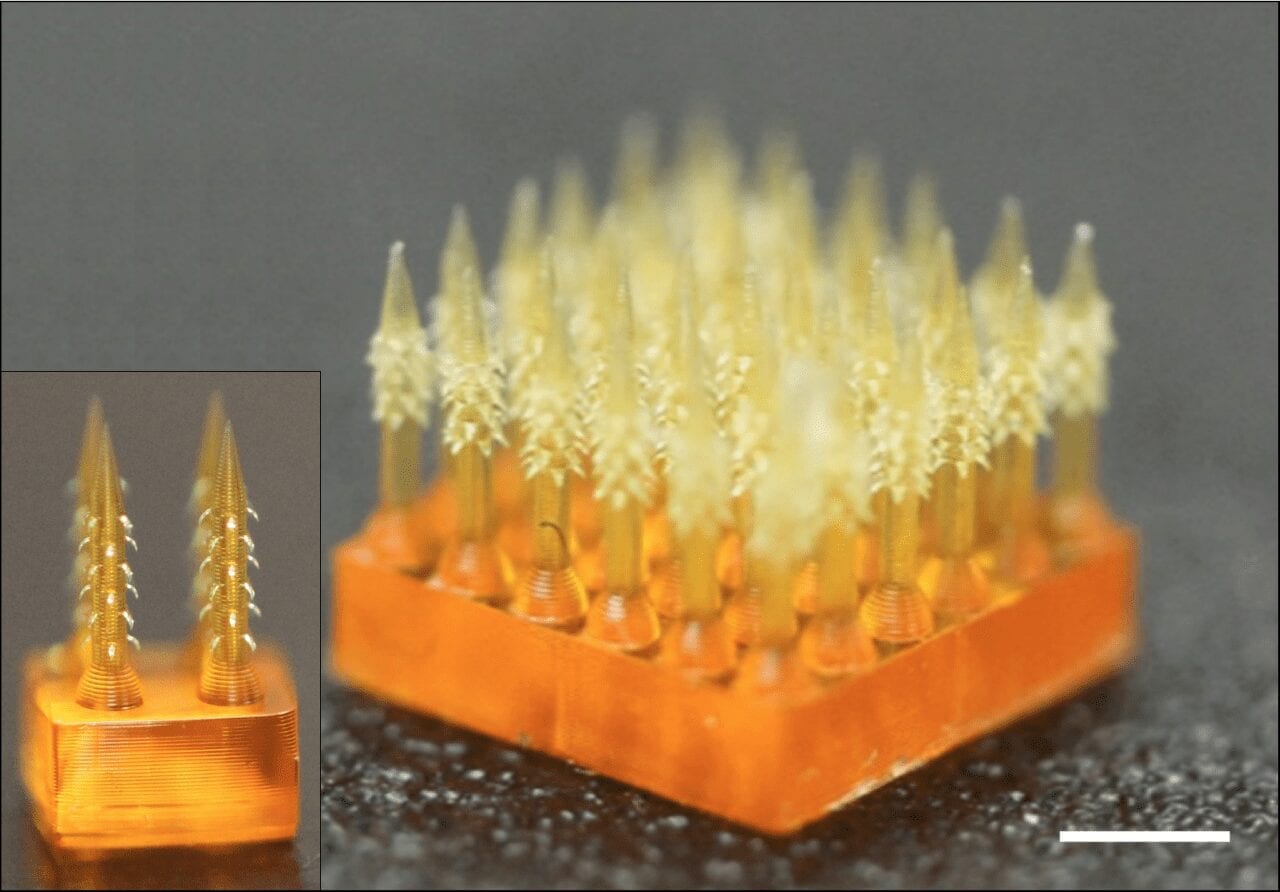Ahmed Alquraan (left), Professor Samer Al-Kiswany (centre, kneeling) and Ibrahim Kettaneh (right) pictured in one of the server rooms in Waterloo’s David R. Cheriton School of Computer Science. Hatem Takruri, lead author on the study, was unavailable for the photo.
Computer scientists at the University of Waterloo have found a novel approach that significantly improves the storage efficiency and output speed of computer systems.
Current data storage systems use only one storage server to process information, making them slow to retrieve information to display for the user. A backup server only becomes active if the main storage server fails.
The new approach, called FLAIR, optimizes data storage systems by using all the servers within a given network. Therefore, when a user makes a data request, if the main server is full, another server automatically activates to fill it.
“The key enabler for FLAIR is the recent introduction of programmable networks,” said Samer Al-Kiswany, a professor in Waterloo’s David R. Cheriton School of Computer Science and co-author of the study introducing the FLAIR technique. “Since the invention of computers, networks that connect storage servers in any system were rigid and inflexible. FLAIR leverages a new cutting-edge networking technology to build a smart network layer that can find the fastest way to fulfil information retrieval requests. Our evaluation shows that this approach can fulfil requests up to 2.5 times faster, compared to classical designs.”
FLAIR is a short for fast, linearizable, network-accelerated client reads, a novel protocol to serve reads from follower replicas with minimal changes to current leader-based consensus protocols without using leases, all the while preserving linearizability.
In developing the new protocol, the researchers first had to prove its correctness and formally verify it to ensure the approach will not return bad results. They were able to test FLAIR with real workloads on campus, as Waterloo is one of the few universities that have a cluster with the new programmable network.
Al-Kiswany and his team found that FLAIR increased retrieval speeds by anywhere from 35 to 97 percent.
“This will lead to a whole range of applications as this type of system is the core building block of a wide range of applications,” said Ibrahim Kettaneh, one of the graduate students working on the development of FLAIR. “FLAIR can significantly improve the performance of databases and data processing engines, which are the backends for health systems, banking systems and financial transactions. It will also be applicable to any modern computer application hosted on the cloud, such as online documents, social networks and emails.”
The Latest Updates from Bing News & Google News
Go deeper with Bing News on:
Output speed of computer systems
- How to enter the BIOS menu on a Windows PC
BIOS stands for Basic Input/Output System and is the firmware your computer uses when you first power it on ... hardware settings if you need to — for example tweaking RAM clock speed, checking for ...
- The Computers Of Voyager
After more than four decades in space and having traveled a combined 44 billion kilometers, it’s no secret that the Voyager spacecraft are closing in on the end of their extended ...
- CableTime’s 16-In-2 Docking Station Is A Swiss Army Knife For Laptops
If you want an affordable docking station for a laptop, the CableTime 16-IN-2 Dual USB-C multiport docking station provides a lot for the money.
- Researcher: Climate models can run for months on supercomputers—but my new algorithm can make them ten times faster
Climate models are some of the most complex pieces of software ever written, able to simulate a vast number of different parts of the overall system, such as the atmosphere or ocean. Many have been ...
- USB-C explained: How to get the most from it (and why it keeps on getting better)
USB-C and other high-speed protocols can push data to warp speeds ... moving data while charging the system. The $290 Plugable TBT4-UDX1 dock is connection central, with 11 ports and the ability ...
Go deeper with Google Headlines on:
Output speed of computer systems
[google_news title=”” keyword=”output speed of computer systems” num_posts=”5″ blurb_length=”0″ show_thumb=”left”]
Go deeper with Bing News on:
Storage efficiency of computer systems
- Is Super Micro Computer Stock Headed for $1,000?
As investors evaluate the trajectory of Super Micro Computer (SMCI), speculation abounds regarding the stock’s potential rise to the psychologically significant $1,000 mark. Recent market volatility, ...
- Researchers conduct survey on deduplication systems
A review published in the International Journal of Grid and Utility Computing has investigated ways in which the increasing problem of duplicate data in computer storage systems might be addressed.
- How Computer Vision Is Transforming Cybersecurity
Explore how computer vision revolutionizes cybersecurity, enhancing threat detection and surveillance systems through innovative technology.
- Enhancing efficiency
Software solutions provider GEOVIA, a brand of software company Dassault Systèmes, has introduced two new roles to its portfolio, which facilitate improved collaboration, and fast-track work processes ...
- Using liquid metal to develop energy storage systems with 100 times better heat transfer
The industrial production of steel, concrete, or glass requires more than 20% of Germany's total energy consumption. Up to now, 90% of the fuels used for these processes have been of fossil nature.
Go deeper with Google Headlines on:
Storage efficiency of computer systems
[google_news title=”” keyword=”storage efficiency of computer systems” num_posts=”5″ blurb_length=”0″ show_thumb=”left”]











